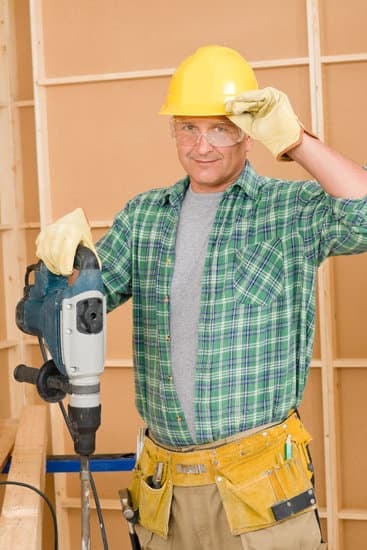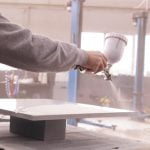Home improvements have long been a popular way for homeowners to enhance their living spaces and add value to their properties. In the UK, where the real estate market is continually evolving, it’s important for homeowners to understand which improvements yield the highest return on investment. From stunning kitchen remodels to energy-efficient upgrades, there are countless ways to boost your home’s value.
This article delves into the realm of home improvements in the UK, exploring the projects that have the most impact on property value. Whether you’re looking to sell your home in the near future or simply want to increase its worth for personal reasons, this guide will provide valuable insights and practical tips.
In Section I, we explore renovations that focus on enriching curb appeal, including landscaping and exterior upgrades which can instantly catch potential buyers’ eyes. We also investigate how kitchen remodels and bathroom upgrades can transform your home’s heart into a luxurious oasis.
Section II dives into expanding living spaces with loft conversions, room extensions, garden rooms, and annexes. These additions not only provide extra square footage but also create functional spaces that maximize a property’s potential.
Energy efficiency takes center stage in Section III as we uncover the benefits of sustainable features such as renewable energy sources and solar panels. Additionally, we discuss how insulation and windows play a crucial role in reducing energy consumption and costs. This section also explores smart home technologies that enhance both comfort and savings.
Finishing touches can make all the difference when it comes to adding value to your home. Section IV assesses various flooring options, illuminating modern lighting fixtures, and exquisite details such as crown molding and fine carpentry.
Lastly, we delve into evaluating return on investment (ROI) by researching real estate market trends and calculating potential ROI for different home improvement projects. Considering factors like longevity and resale value is essential when making informed decisions for maximum value.
Throughout this article, expert tips and key takeaways will be provided to guide homeowners seeking value-boosting improvements. So, let’s embark on this journey of home improvement and discover how you can make the most out of your investment.
Understanding the Importance of Value-Adding Home Improvements
Value-adding home improvements are essential for homeowners who want to increase the worth of their properties. These upgrades not only enhance the aesthetic appeal of a home but also have a significant impact on its overall value in the real estate market. Understanding the importance of value-adding home improvements can help homeowners make informed decisions and maximize their return on investment.
One key area where homeowners can focus on to add value to their properties is renovations that boost property value in the UK. Enhancing curb appeal through landscaping and exterior upgrades is a popular choice among homeowners.
A well-maintained garden, clean walkways, and an attractive facade can significantly increase the visual appeal of a property. Adding elements like outdoor lighting, flower beds, and a new front door can further enhance curb appeal and leave a lasting impression on potential buyers.
Another significant aspect of value-adding home improvements is renovating the heart of the home – the kitchen. Kitchen remodels have been proven to have a high return on investment and can greatly influence buyer decisions. Upgrading countertops, cabinets, appliances, flooring, and fixtures can breathe new life into an outdated kitchen and make it more appealing to potential buyers. It is essential to strike a balance between functionality and aesthetics when planning a kitchen remodel to ensure maximum value.
Lastly, bathroom upgrades are known for capturing attention and increasing property value. Creating luxurious retreats through stylish showers, modern fixtures, updated vanities, elegant tiles, and adequate lighting can transform any ordinary bathroom into a spa-like oasis. Homeowners should focus on creating a clean and fresh look while ensuring that both style and functionality are considered.
By understanding these key areas of value-adding home improvements, homeowners can prioritize their renovation projects effectively and make informed decisions that will ultimately result in maximum value for their properties. Whether it’s enhancing curb appeal with landscaping or focusing on renovating the kitchen or bathroom – investing in these areas will not only increase the enjoyment of living in the home but also attract potential buyers and significantly boost the overall value of a property.
Section I
When it comes to home improvements, not all renovations are created equal in terms of adding value to a property. In this section, we will explore some of the renovations that have been shown to boost property value in the UK.
One renovation that can greatly enhance curb appeal and increase property value is landscaping and exterior upgrades. The National Association of Estate Agents has reported that a well-maintained garden can add up to 20% to the value of a property.
This includes keeping the garden tidy, adding plants and flowers for color, and creating functional outdoor spaces such as patios or decking. Additionally, updating the exterior of your home with features like new siding or a fresh coat of paint can give your property a fresh and modern look that will attract potential buyers.
Another renovation that can have a significant impact on property value is a kitchen remodel. The kitchen is often considered the heart of the home and is one of the most important factors for potential buyers when considering a purchase. According to Remodeling magazine’s Cost vs Value report, a minor kitchen remodel has an average return on investment (ROI) of about 78% in the UK. This includes updating fixtures and appliances, replacing countertops and cabinets, and improving overall functionality.
Lastly, bathroom upgrades are also known to add value to a property. Similar to kitchens, bathrooms are high on the list of priorities for potential buyers. Simple updates such as replacing old fixtures or installing new tiles can give your bathroom a modern look without breaking the bank. Additionally, if space allows, consider adding another bathroom or converting an underutilized space into an ensuite bathroom to further increase your property’s value.
In summary, when it comes to home improvements that boost property value in the UK, renovations such as landscaping and exterior upgrades, kitchen remodels, and bathroom upgrades stand out as some of the most effective options. By enhancing curb appeal, improving the heart of the home, and creating luxurious retreats in bathrooms, homeowners can maximize their property’s value and attract potential buyers.
| Rennovations | Return on Investment (ROI) |
|---|---|
| Landscaping and Exterior Upgrades | Up to 20% |
| Kitchen Remodels | Average ROI of about 78% |
| Bathroom Upgrades | Increase in property value |
Section II
When it comes to increasing the value of your home, adding square footage and functional spaces can be a game-changer. Not only does this enhance the overall livability of your property, but it also appeals to potential buyers who are looking for extra space. In this section, we will explore some popular home improvement projects that can add square footage and create functional spaces.
a. The Extra Space Advantage: Loft Conversions and Room Extensions
Loft conversions and room extensions are excellent options for homeowners who want to maximize their living space without moving to a new property. A loft conversion involves transforming an underutilized attic into a habitable room, such as a bedroom or office. This not only adds valuable square footage but also creates a private retreat within your own home.
On the other hand, room extensions involve expanding an existing room or adding an entirely new one to your property. This can be done by utilizing unused outdoor space or extending the floor plan of your house.
b. Multipurpose Outbuildings: The Potential of Garden Rooms and Annexes
Garden rooms and annexes have gained significant popularity in recent years due to their versatility and functionality. These outbuildings provide additional living spaces that can serve various purposes such as a home office, gym, guest accommodations, or even a creative studio.
Garden rooms are usually separate structures that stand independently in the backyard, while annexes are often attached to the main house but with separate entrances. These additions not only increase the square footage of your property but also offer privacy for you and your guests.
c. Unlocking Potential: Converting Basements into Usable Living Areas
Basements are often overlooked spaces that hold untapped potential for increasing both the value and functional areas of a home. Converting basements into usable living areas is becoming increasingly popular, especially in urban areas with limited space for expansion. Whether you transform your basement into a home theater, playroom, or extra bedroom, this renovation adds valuable square footage to your property and provides additional living space that can be enjoyed by the whole family.
By investing in these types of home improvements, you not only add square footage to your property but also create functional spaces that enhance its overall appeal. Whether it’s a loft conversion, room extension, garden room, annex, or basement conversion, each project brings its own unique benefits. Not only will these additions increase the value of your home in the UK market but also provide you and your family with practical and enjoyable living spaces.
Section III
Sustainable Serenity: Exploring Renewable Energy and Solar Panels
One of the most effective ways to add long-term value to your home is by investing in sustainable and energy-efficient improvements. Not only do these upgrades help reduce energy consumption and costs, but they also appeal to environmentally-conscious buyers. One popular energy-efficient improvement is the installation of renewable energy sources such as solar panels.
Solar panels have become increasingly popular in the UK as homeowners recognize their financial and environmental benefits. By harnessing the power of the sun, solar panels generate electricity that can be used to power your home, reducing reliance on traditional energy sources. This not only lowers your carbon footprint but also saves you money on monthly utility bills. Moreover, homes with solar panels often have higher resale values due to their appealing features and potential for long-term cost savings.
If you’re considering installing solar panels, it’s important to consult with a professional to assess your property’s suitability for this technology. Factors such as roof orientation, shading, and available space play a crucial role in determining the efficiency of a solar panel system. Additionally, take advantage of government incentives and grants that may be available for homeowners investing in renewable energy sources.
Insulation and Windows: Reducing Energy Consumption and Costs
Another energy-efficient improvement that adds long-term value to a home is upgrading insulation and windows. Proper insulation helps maintain a comfortable temperature indoors while reducing heat loss or gain from outside. This results in lower heating and cooling costs throughout the year, making it an attractive feature for potential buyers.
When upgrading insulation, consider improving both attic insulation and wall insulation for maximum efficiency. Popular options include fiberglass batts, blown-in cellulose or fiberglass insulation, or even foam spray insulation depending on your budget and specific needs. Additionally, ensure that windows are properly sealed with weatherstripping or caulk to prevent drafts from entering your home.
Upgrading windows to energy-efficient alternatives is also a valuable improvement. Double or triple-pane windows with low-emissivity (low-E) glass can help reduce heat loss and control solar heat gain. These windows often come with the added benefit of reducing outside noise, improving indoor comfort, and increasing the overall energy efficiency of your home.
Smart Home Technologies: Enhancing Comfort, Convenience, and Savings
In today’s technological age, smart home technologies have become increasingly popular among homeowners seeking energy-efficient improvements. Smart thermostats, lighting systems, and appliances offer greater control over energy consumption while enhancing comfort and convenience.
Smart thermostats allow homeowners to easily adjust temperature settings remotely using a smartphone app. They also learn your heating and cooling preferences over time, saving energy by automatically adjusting temperatures when you’re away from home or during sleeping hours. By optimizing your house’s temperature settings, you can achieve significant savings on your energy bills while enjoying a comfortable living environment.
Similarly, smart lighting systems enable homeowners to automate lighting schedules and adjust brightness levels based on occupancy or natural light availability. This helps reduce unnecessary energy consumption by avoiding leaving lights on in empty rooms or maintaining brighter lights than necessary.
Investing in smart appliances such as refrigerators, dishwashers, or washing machines can also contribute to long-term savings. These appliances are designed to be more efficient both in terms of water usage and electricity consumption. Some models even have features that allow you to track usage patterns and adjust settings accordingly for optimal efficiency.
By incorporating these energy-efficient upgrades into your home, you not only enhance its value but also contribute to a more sustainable future and potentially attract eco-conscious buyers who are willing to pay a premium for such improvements.
Section IV
Appealing Flooring Choices: Hardwood, Laminate, and Tile
When it comes to adding value to your home, one aspect that should not be overlooked is the choice of flooring. The type of flooring you have can significantly influence a potential buyer’s perception of the property. Hardwood flooring is often considered the gold standard due to its timeless appeal and durability. It adds an air of elegance and sophistication to any space and can command a higher selling price.
Laminate flooring is a more affordable alternative that mimics the look of hardwood without the high price tag. It offers durability and easy maintenance, making it a popular choice among homeowners. Tile flooring, especially in kitchens and bathrooms, also adds value as it is moisture-resistant and gives a clean and modern aesthetic.
Illuminating Spaces: The Impact of Modern Lighting Fixtures
Lighting plays a crucial role in setting the ambiance of a home and enhancing its overall appeal. Upgrading lighting fixtures can instantly transform a space from outdated to contemporary. Consider installing LED recessed lighting for a clean and modern look that offers energy efficiency benefits.
Pendant lights above kitchen islands or dining tables create focal points while adding style and functionality. Chandeliers in entryways or staircases make grand statements, leaving an unforgettable impression on potential buyers. Additionally, installing dimmer switches throughout the house allows for flexibility in creating different moods according to the occasion.
Exquisite Details: Crown Molding, Wainscoting, and Fine Carpentry
Finishing touches that showcase attention to detail can make all the difference when it comes to adding value to your home. Crown molding adds an elegant touch by bridging the gap between walls and ceilings, giving rooms a polished and sophisticated look. Wainscoting can add character by protecting walls from everyday wear and tear while also providing visual interest with different textures and colors.
Fine carpentry, such as customized built-in shelves or window seats, can create functional and attractive storage solutions that optimize space. These exquisite details demonstrate craftsmanship and enhance the overall appeal of a home, ultimately increasing its value.
By focusing on these finishing touches, homeowners can make their property stand out from the competition and maximize its value. The choices made in terms of flooring, lighting fixtures, and fine carpentry can have a significant impact on a potential buyer’s perception of the home’s quality and desirability. Ultimately, investing in these powerfully transformative finishing touches is a wise decision for homeowners seeking to add the most value to their property in the UK housing market.
Evaluating Return on Investment (ROI)
Return on investment (ROI) is a key consideration when it comes to home improvements. Before embarking on any renovation project, homeowners should carefully evaluate the potential return they can expect from their investment. By researching and understanding real estate market trends, calculating potential ROI, and considering longevity and resale value, homeowners can make informed decisions that maximize the value of their property.
Researching and understanding real estate market trends is an essential step in evaluating ROI. Homeowners should stay informed about the local housing market in order to identify popular features and amenities that are in high demand among buyers. This information can help guide decision-making when choosing which home improvements to prioritize.
Calculating potential ROI for different home improvement projects is another important aspect of evaluating value. By determining the costs of a project and estimating its potential increase in property value, homeowners can assess whether or not it will provide a favorable return. This calculation should also take into account factors such as the length of time that may be required to recoup the initial investment.
Considering longevity and resale value is crucial when assessing the ROI of a home improvement project. Homeowners should focus on renovations that have lasting appeal and add long-term value to their property. Investing in high-quality materials and craftsmanship can also contribute to increasing the overall desirability of a home.
To assist homeowners in making informed decisions, experts recommend consulting with professionals such as real estate agents, contractors, or appraisers who have knowledge and experience in evaluating ROI for various home improvement projects. These professionals can provide valuable insights based on their expertise and industry knowledge.
Conclusion
In conclusion, when it comes to home improvements that add the most value in the UK, there are several key areas to focus on. Enhancing curb appeal through landscaping and exterior upgrades can make a significant difference in attracting potential buyers and increasing property value. Similarly, kitchen remodels and bathroom upgrades are known for their impact on the heart of the home, making them worthwhile investments.
Adding square footage and creating functional spaces is also a smart strategy for maximizing value. Loft conversions, room extensions, garden rooms, annexes, and basement conversions all provide extra space that can be utilized in various ways. These additions not only improve the functionality of a home but also increase its overall value.
Energy-efficient improvements are another crucial aspect to consider. Investing in renewable energy sources such as solar panels, implementing insulation and better windows to reduce energy consumption and costs, and incorporating smart home technologies can enhance comfort, convenience, and long-term savings while adding value to the property.
Lastly, paying attention to finishing touches is essential for creating an appealing living space. High-quality flooring choices like hardwood or tile can make a significant impact on aesthetics and overall value. Modern lighting fixtures can illuminate spaces and create a welcoming ambiance. Exquisite details such as crown molding, wainscoting, and fine carpentry add sophistication and elegance.
To make informed decisions for maximum value when planning home improvements, homeowners should conduct thorough research on real estate market trends. This will provide insights into which improvements are highly sought after by potential buyers. Additionally, calculating potential return on investment (ROI) for different projects is crucial before embarking on any major renovations or upgrades.
Considering longevity and resale value is equally important. Homeowners should ensure that any improvements they make align with their long-term goals while also appealing to future buyers if they decide to sell in the future.
Seeking advice from experts in the field can provide valuable guidance throughout the decision-making process. Pro tips include seeking professional opinions on specific improvements, leveraging their expertise to navigate market trends, and staying informed about the latest home improvement technologies and techniques.
By following these strategies and utilizing expert advice, homeowners can make informed decisions that maximize the value of their properties through well-planned and executed home improvements.
Frequently Asked Questions
What puts most value on a house?
The factors that typically put the most value on a house are its location, size, condition, and amenities. Location is often considered the most important factor as it impacts accessibility to schools, workplaces, amenities, and overall desirability of the area. A larger house with more livable space generally holds more value than smaller homes in the same neighborhood.
The condition of the house also plays a crucial role – a well-maintained property will command a higher price than one in need of significant repairs. Lastly, desirable features such as updated kitchens and bathrooms, energy-efficient appliances, ample storage space, or outdoor amenities like a backyard can significantly increase a home’s value.
What upgrades add the most value to a home?
Certain upgrades tend to add more value to a home compared to others. For instance, renovating the kitchen has consistently been considered one of the most impactful ways to increase a home’s value. Updating cabinets and countertops, installing new appliances or fixtures, and improving the layout can have a significant positive impact on both buyers’ perceptions and resale value.
Similarly, upgrading bathrooms by replacing outdated fixtures or adding modern conveniences like walk-in showers or double vanities can substantially enhance a home’s appeal. Other valuable upgrades include adding square footage through additional rooms or extensions and improving energy efficiency through insulation or upgraded heating/cooling systems.
What should I renovate before selling?
When considering renovations before selling your house, focusing on areas that create a strong first impression is usually recommended. Curb appeal is vital; therefore investing in exterior improvements such as landscaping maintenance, fresh coats of paint for both the exterior façade and front door, repairing any visible damages or cracks will contribute positively towards potential buyers’ perception of your property from the moment they lay eyes on it. Inside the house itself, bathrooms and kitchens are also good areas to renovate prior to selling as they often provide some of the highest return on investment (ROI).
Additionally updating flooring choices throughout the home or refreshing paint colors to neutral choices can help create a more appealing and versatile backdrop that will attract a wider range of potential buyers. Ultimately, it’s advisable to consult with a real estate agent or professional home stager who can provide tailored recommendations based on local market trends and buyer preferences.

I’m thrilled to have you here as a part of the Remodeling Top community. This is where my journey as an architect and remodeling enthusiast intersects with your passion for transforming houses into dream homes.





